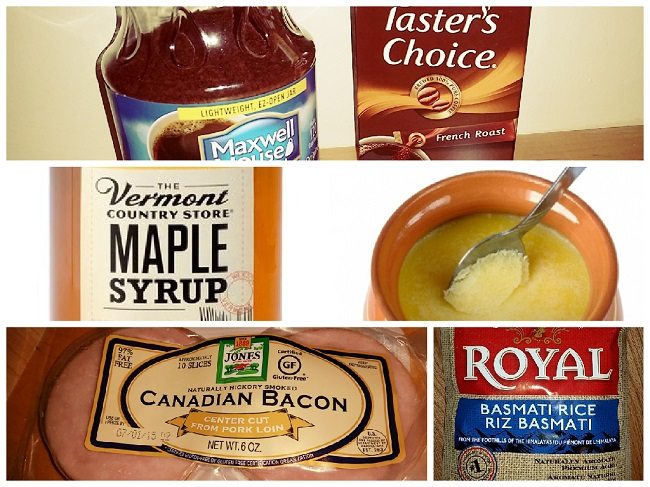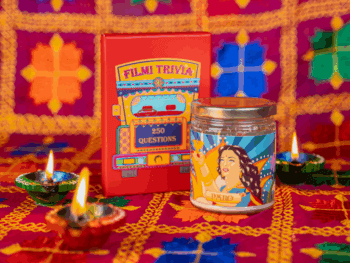Some "Bad" Foods Are Actually Good for You
Do you find yourself shying away from maple syrup due to its high sugar content? Do you recoil in horror at the sight of your mother adding some ghee to your breakfast paratha? We list below some foods that have earned a bad reputation but, in fact, can be very beneficial to you in the long run.
Bacon

The world belongs to bacon. It’s in your breakfast sandwich, in your lunch pasta, and in your dinner. It's also often associated with clogged arteries — a reputation not unwarranted. Regular, fried crispy bacon is high in sodium (salt) and saturated fats. The alternative? Canadian bacon! Compared ounce to ounce, Canadian bacon has only 33 per cent of the calories of regular bacon and 15 per cent of the fat. It's also a fairly decent source of vitamin B, zinc and iron, and with unsaturated fats, it's comparatively heart-friendly.
Maple Syrup
photo: vermontcountrystore.com
White Rice

With the recent hoopla over the high carbohydrates and saturated fats in white rice, many of us have moved over to brown rice or quinoa as a healthy alternative. While the latter two grains are definitely a better health choice, many meals aren't complete without white rice, and if you eat it in moderation, you'll enjoy some health benefits. For starters, the rich carbohydrates are a great source of energy, which is necessary to avoid feeling tired and lethargic. When served as a side with a protein, rice will provide a balanced meal and help provide the amino acids required to build muscle. If high fibre leads to an upset stomach, diarrhea and morning sickness, eating more white rice during meals can help with your digestion due to its mild diuretic properties.
Coffee

A lot of us can't get through a work or school day without a few cups of coffee, all the while worrying about its negative impacts on our health. The primary concern is its addictive properties. Coffee, in fact, has a high concentration of flavonoids (plant-based nutrients from the polyphenol category), which can help protect cells from the negative side-effects of aging. Coffee can help lower the risk of developing Parkinson’s disease, Alzheimer’s and type 2 diabetes. Three to four cups a day will not harm you, but try not to exceed that!
Ghee
While ghee has been a staple in South Asian food for generations, the thought of ghee today conjures nightmares of weight gain. While excessive consumption will lead to weight gain and high cholesterol, with moderate use, clarified butter offers undeniable benefits. Significant levels of Omega-3s, vitamin A, vitamin D and vitamin E are present in ghee, along with butyric acid, which can help reduce inflammation in the gastrointestinal tract and elsewhere. For people intolerant of lactose, ghee can be a good alternative to butter. The antioxidant carotenoid can prevent the degeneration of eye cell tissue and the subsequent development of cataracts. Butyric acid stimulates T-cell production, and the combination of these acids can assist in lowering oxidative stress in the body.
So go ahead and put some ghee on your paratha for that extra kick of yum. But remember, everything in moderation! Bon appétit!
Source:
livestrong.com/slideshow/1006213-14-proteinpacked-breakfasts-power-through-morning/
health.com/health/gallery/0,,20464527_5,00.html
http://www.newhealthguide.org/Is-White-Rice-Good-For-You.html
organicfacts.net/health-benefits/other/ghee-clarified-butter.html
Farah Khan | Editorial Director
Author
Farah Khan manages the editorial department at ANOKHI LIFE, overseeing content production, publishing, and the annual editorial calendar, while also supporting operations, projects, systems, events, and vendor coordination.




















































































































